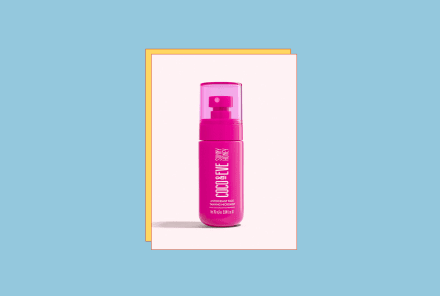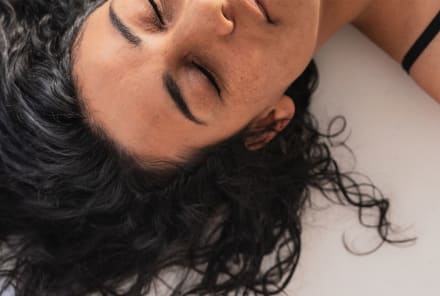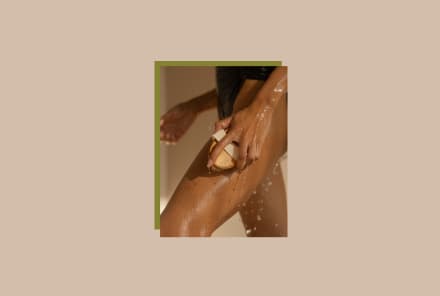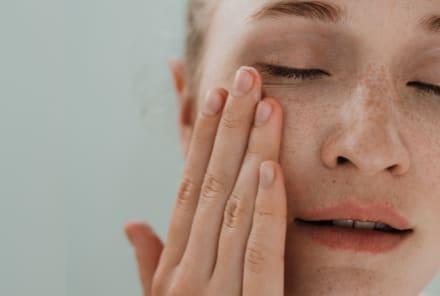Advertisement
Why Self-Care Is Absolutely Vital For Activists (And How To Do It)

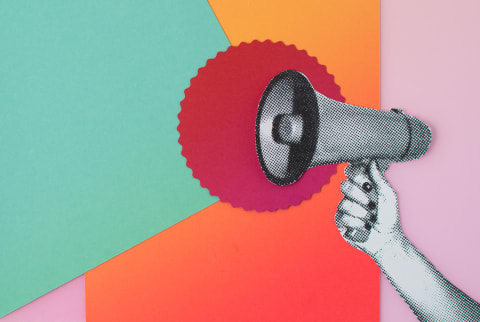
If you’re actively engaged in any kind of activism, advocacy, or social justice work, it’s very easy to lose sight of your own self-care.
We live in a world where millions of people still experience needless physical, mental, emotional, and economic suffering—and on a planet facing imminent existential crisis—and it’s vital for us to stand up to protect the safety, well-being, and rights of every living human being, especially those most oppressed and marginalized among us.
That said, this work comes with grueling costs. Recent research1 published in the journal PLOS ONE surveying 1.8 million Americans found political involvement in particular can have a very detrimental effect on both physical and mental health, including heightened stress, loss of sleep, increased fatigue, and even suicidal thoughts, not to mention the damage done to our social relationships.
Fighting for a cause is exhausting, in all senses of the word—which is why practicing self-care is so important for people who are doing this work. More than anyone else, people engaged in this work need to prioritize their own well-being.
We reached out to three incredible activists who are doing necessary work in social justice, trauma healing, sex education, and more. They share with us why doing this work can dramatically affect a person's physical and psychological health and what they do to care for their bodies and souls. Here's what they told us.
“That demand can cause us to think that our mental health is expendable.”
Activism and political engagement has such a profound effect on our mental health because of the requirements on our part to engage with them on this level. And what I mean by this is that for folks on the political and activist front lines (which are largely black and non-black people of color, queer folks, and marginalized folks) who have been doing this work are burdened with incredible physical, mental, and spiritual demands. So much of what we're fighting for in 2019 and going into 2020 are things that won't be abolished in our lifetimes, and that demand can cause us to think that our mental health is expendable or worth sacrificing to get to that end point. But that's not the case at all.
My understanding of self-care has shifted so much this year. Going back to Audre Lorde's original definition of it, I've started to really focus self-care on not the action but the intention of it. I enjoy face masks and baths, but I'm aware of the reason why that's the form of care that I need at the moment. So sometimes self-care is doing that, masturbating, or cooking a really nourishing meal and taking a nap. And other times, it's the actions that I can do to maintain my sense of "normal": checking my bank account daily, flossing, sending that scary email that I'd rather procrastinate. These are things that may not be sexy or fun at the moment, but over time they are buildable habits that help me to maintain a sense of control over my life and how I want to be feeling.
—Cameron Glover, sex educator and host of Sex Ed in Color
“Find a support system. Even though there may be folks around you, it can feel very lonely.”
[This work has such a dramatic effect on our mental health] because it is so constant and all over. Which sounds like a simple answer. There used to be ways to disconnect from things that were going on because they would only be on the television or in a newspaper. But now there is constant information being pushed at us over and over again, due to the fast speed of social media. As for someone who has multiple marginalized identities, it is really hard doing activism and being politically engaged because most of the arguments around me are about and want to snatch away my rights. That is goddamn stressful waking up every day on edge, checking to see if someone else that does not understand your journey gets to make decisions about your livelihood.
When you are in the thick of all the work, you may not realize and/or forget to take care of your body. A lot of folks get so wrapped up in the work and helping others, they forget to take care of themselves.
Setting alarms for yourself on your phone to drink water and eat can be really helpful. Some folks may laugh at that, but it can honestly be so helpful.
Intentionally schedule your self-time for yourself. A lot of people live by their calendars. Schedule yourself some time to be alone and check in with yourself. It does not have to be a long amount of time, or it may need to be. I would say at least schedule 30 minutes of time to just check in with yourself. Physically, spiritually, and emotionally—you deserve it and you need it.
Find a support system. This work is really hard, and even though there may be folks around you, it can feel very lonely. If that looks like a group of friends that see you for you outside of the work, then great. Find a therapist that can talk you through all the brain things that are happening for you. And just having that non-biased opinion can be really helpful.
—Jimanekia Eborn, trauma specialist, sex educator, and queer media consultant
“I cannot pour from an empty cup.”
Activism and political engagement have a grave impact on not only our mental health but our physical, spiritual, and emotional health—our entire well-being. This occurs for a variety of reasons, but I can say as a womxn of color fighting against racist heteropatriarchy day in and day out, it takes a major toll because I am seeking to dismantle systems that were intentionally created for the purpose of keeping me, and all those who look like me, powerless, obedient, poor, sick, and silent. The more you engage in this work, the more you uncover about the ways in which all of the systems we exist within are oppressive and cause harm. To all of us, albeit in different ways. It can feel hopeless and utterly overwhelming (on a good day). For marginalized folks who also encounter relentless vitriol from people who disagree with our humanity, and have for centuries, it undoubtedly takes a toll. As James Baldwin said ‘to be [Black] in this country and to be relatively conscious is to be in a rage almost all the time.’
No matter who you are, I believe at the heart of it all is deep grief. Whenever we engage in advocating to change the status quo we are met with internal and external resistance. We feel a deep and conflicting feelings comprised of sadness, anger, shame, guilt, hope, and/or hopelessness, and many of us are ill-equipped to tolerate, let alone accept and address, the full spectrum of our human emotions because it is socially unacceptable, and we never received the tools to do so.
Activism is often an assault on the soul, which is why caring for ourselves is absolutely necessary. I am always working on my well-being because it is really hard to overcome social programming to constantly DO instead of BE, especially as a Black woman. But, I cannot pour from an empty cup. I cannot show up for others if I am not showing up for myself, so Soul-care, as I like to call it, is one of the most integral components of my work (and the basis for spiritual activism). I practice boundary-setting, meditate, and move my body regularly, usually through yoga (at home as I find most studios around the world are white-washed and appropriative), and I return to my breath as much as possible. It's an ongoing struggle to prioritize my peace but one I am committed to.
—Rachel Ricketts, racial justice activist, healer, and former lawyer
Watch Next
Enjoy some of our favorite clips from classes
Enjoy some of our favorite clips from classes
What Is Meditation?
Mindfulness/Spirituality | Light Watkins
Box Breathing
Mindfulness/Spirituality | Gwen Dittmar
What Breathwork Can Address
Mindfulness/Spirituality | Gwen Dittmar
The 8 Limbs of Yoga - What is Asana?
Yoga | Caley Alyssa
Two Standing Postures to Open Up Tight Hips
Yoga | Caley Alyssa
How Plants Can Optimize Athletic Performance
Nutrition | Rich Roll
What to Eat Before a Workout
Nutrition | Rich Roll
How Ayurveda Helps Us Navigate Modern Life
Nutrition | Sahara Rose
Messages About Love & Relationships
Love & Relationships | Esther Perel
Love Languages
Love & Relationships | Esther Perel
